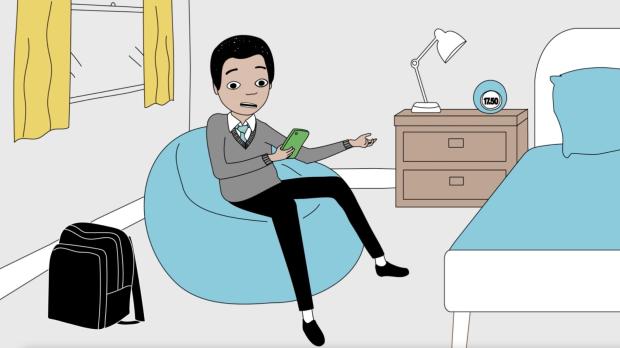Learn more about why children and young people enjoy online gaming, and how you can help young people stay safe whilst playing online.
Play is an important part of childhood. Playing teaches children lots of life lessons, such as teamwork, fairness and imagination and can be a source of many happy memories. Playing games with peers is an important part of childhood development. For many young people nowadays however, they play in the virtual online space.
The opportunity for young people to stay engaged with their friends through online play, easing boredom or taking time to escape the uncertainty of the world has meant that online gaming has risen. Many young people choose online gaming as another way to play with and keep in touch with their friends.
How many young people play games online?
According to Uswitch, 26% of adults in the UK played an online game in 2022, so online gaming isn’t just something children do. However, it is much more popular with young people, with 91% of children aged 3 to 15 playing an online game in 2022. The age group which gamed the most in 2022 were 12–15-year-olds, with 76% saying that they play online games.
Most young people aged 3 to 15 play their online games on a tablet, smartphone or a computer. Recent research by Ofcom has shown that by the age of 12 children are almost certain to own a phone themselves, and around 20% of 3- to 6-year-olds have a phone too.
Online gaming isn’t just for boys either, an increasing number of girls enjoy playing games online.
Why do young people enjoy online gaming?
There are many different reasons why people choose to game and what they feel they get from participating in this activity. Here we explore some of those reasons to help you understand why it is so popular and why your child enjoys spending so much time participating.

“I like playing with my mates”
Online gaming, as opposed to single player gaming, is a social activity which involves playing with others. It can also be a way to chat with friends. When playing with people that they know, online gaming becomes an extension of hanging out with friends in the physical world.
"In the game I can be someone else"
Gaming also provides young people with an escape from reality, the chance to create a world where they can be in control. If your child has experienced a trauma, such as a bereavement, parental separation or divorce, school issues like bullying or moving to a new area, they may use gaming as a comfort as well as a chance to take a break from what is happening in their offline world. Gaming can be a great stress release for young people, whether that is school stresses or a break from homework, taking time out to escape can help.
“When I win, I feel excited”
Games allow the player opportunities to play with a number of people at the same time, to work together and create. It also offers them a chance to achieve goals, win prizes, get rewards and praise: things children and young people are motivated by, and that help build self-esteem.
Gaming can engage people mentally, by providing challenges, different levels and puzzles. People enjoy the challenges they provide and the thrill of working it out.
Games can encourage friendly competition, where players can have fun and chat together and provide something for players which is stimulating and allows them to be creative.
Should I be worried about my child playing online games?
Understanding the positive aspects of online gaming can help you see the situation from your child’s point of view. It is good to think about what gaming and online play brings to your child and why they choose to engage in this activity. Gaming can be a positive thing.
However, being online – just like being out in the world – has some risks. Some people may use online gaming platforms to build relationships of trust with young people in order to groom and exploit them. It’s important to talk openly with your children about their gaming habits and online safety.
Read more about how to talk to your child and keep them safe below:
Learning more about staying safe online can help parents, carers and young people themselves ensure that online gaming is a positive and fulfilling experience.
Why gaming is better for your mental health than you might think
Read our blog about online gaming and mental health to learn more about ways that online gaming can be positive for your wellbeing.
Keeping children safe online
Learn more about how to keep children safe online with tips and advice on talking to children about their habits and safety.
Get help as a parent or carer
Find more support and information as a parent or carer looking after children and young people.



